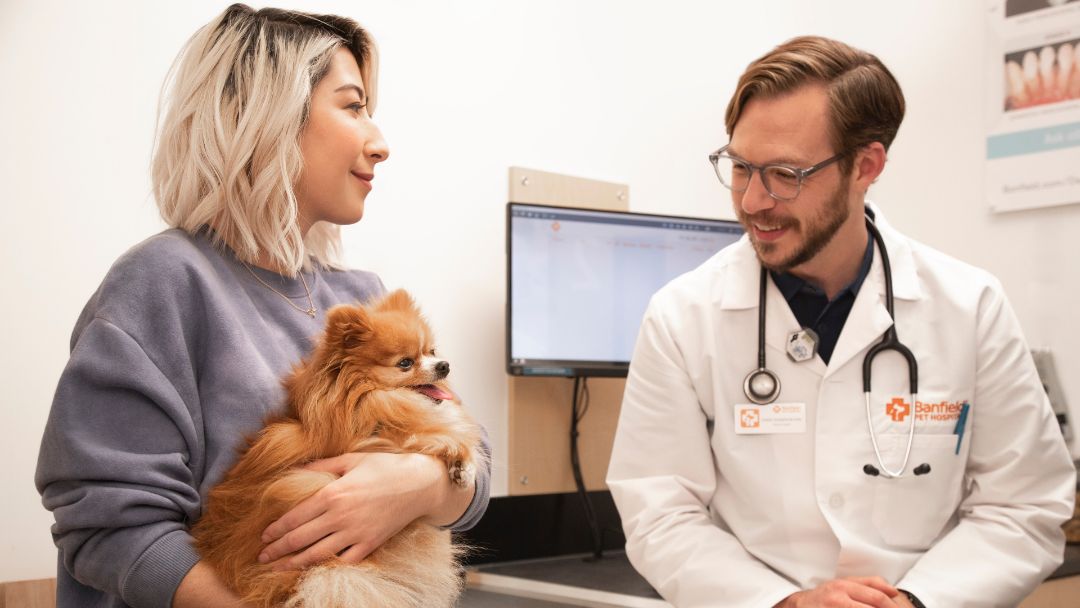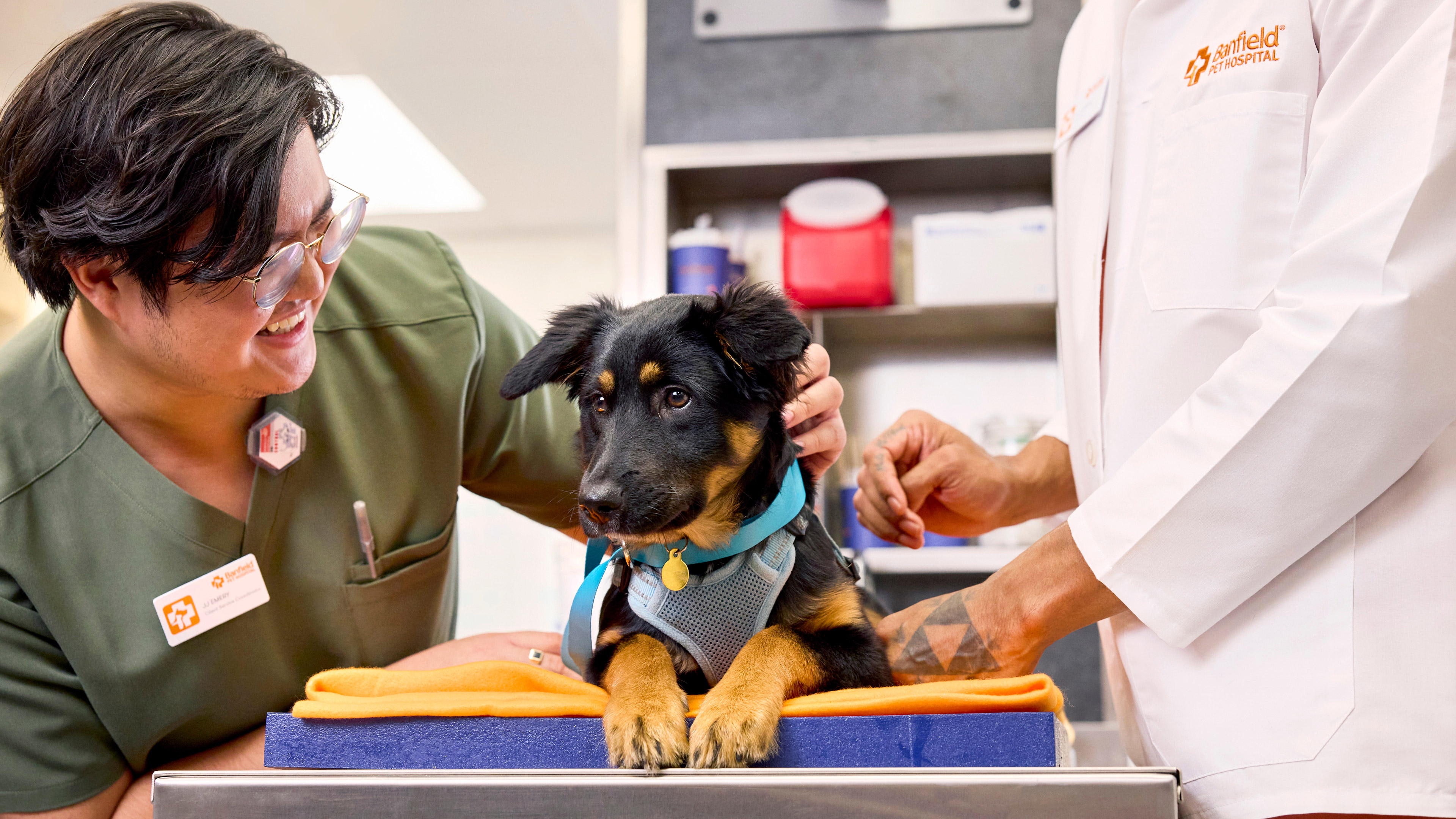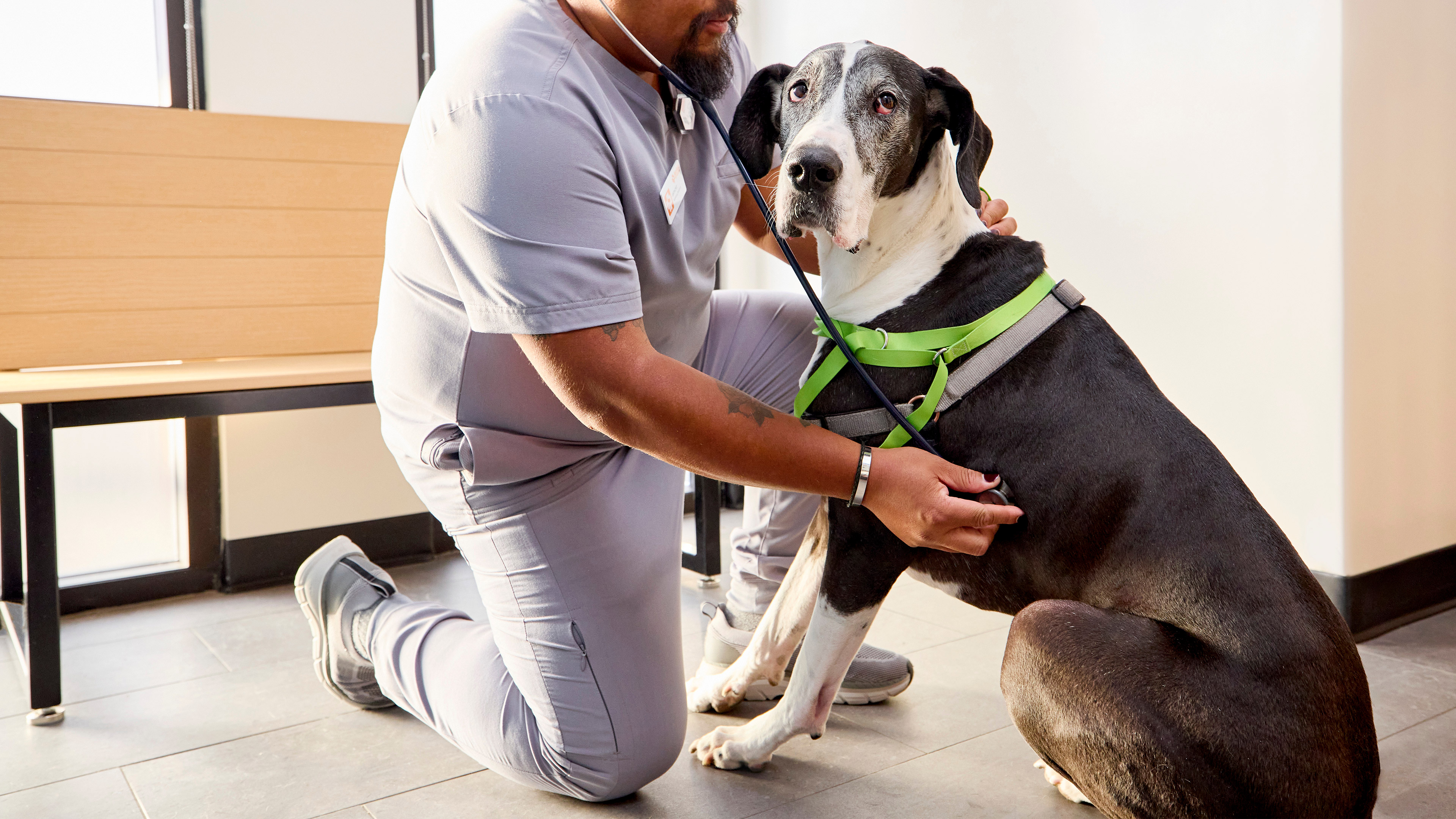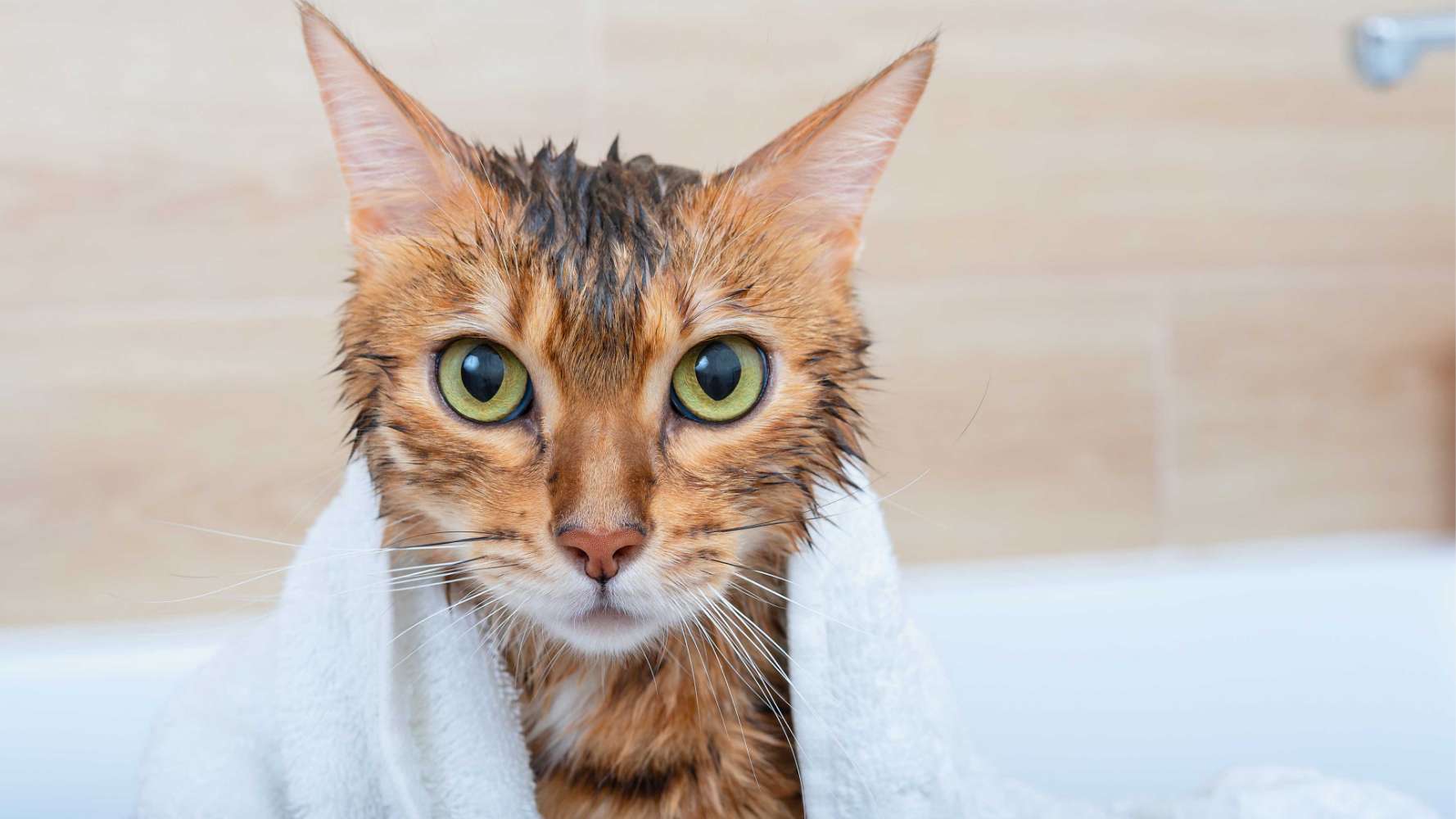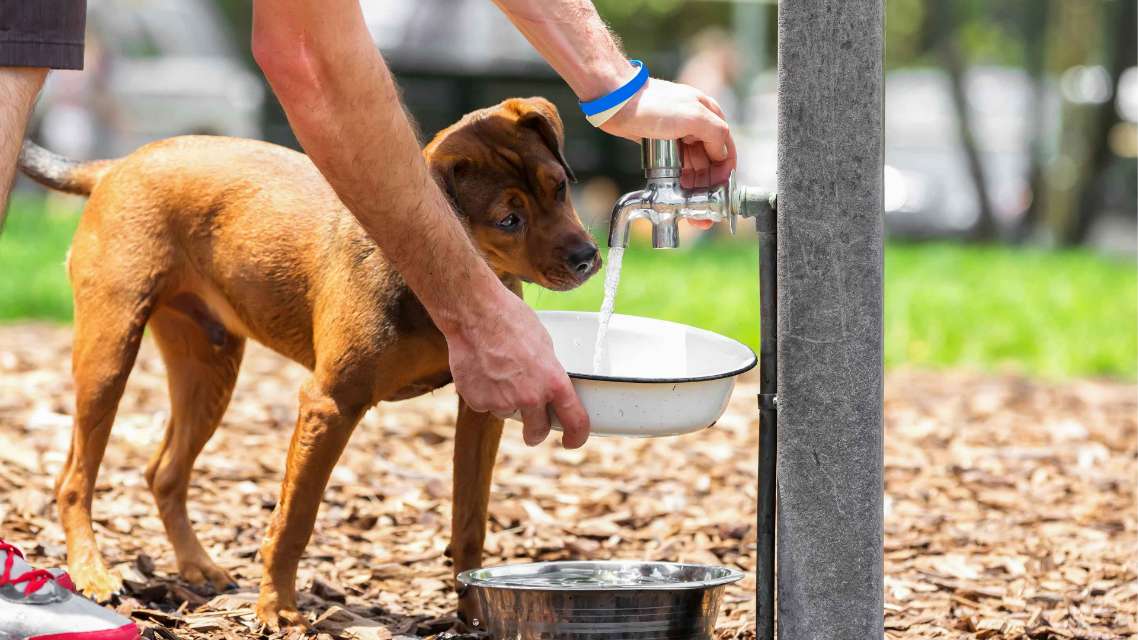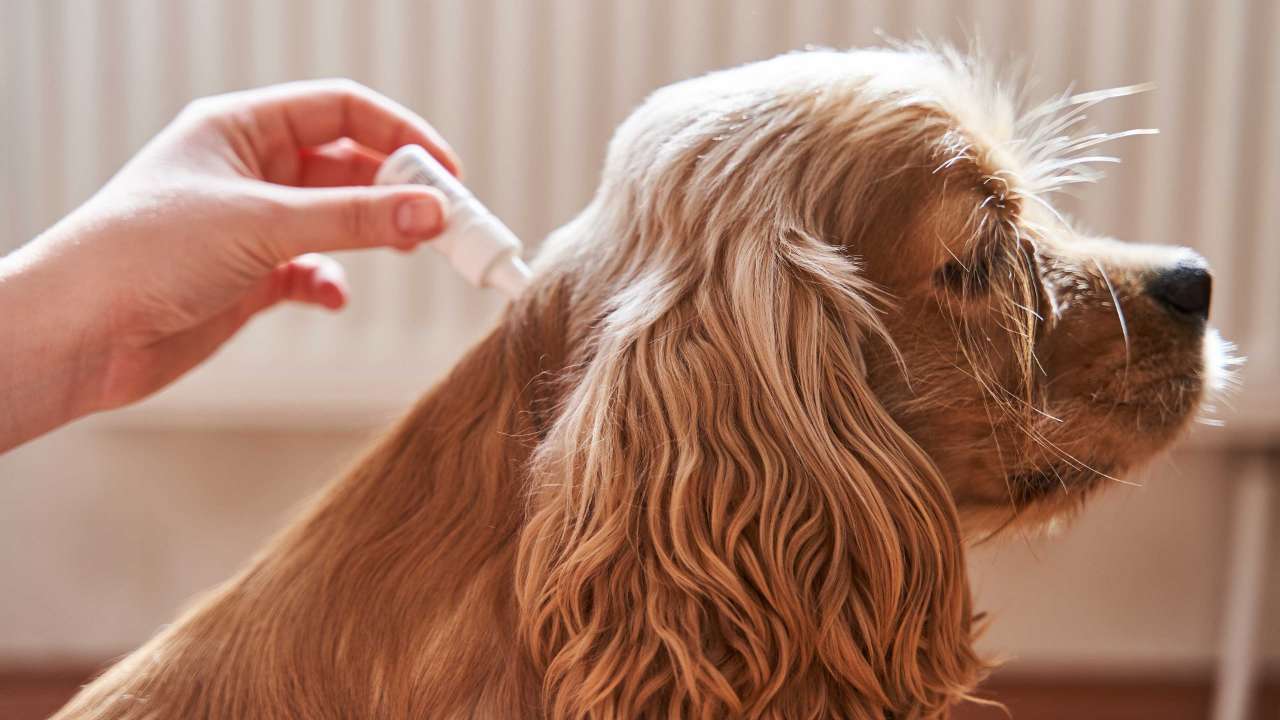the scoop on testing poop
Did you know fecal testing is a GREAT way to check for parasites that may be living inside your pet?
The reason we’re big fans of testing poop at Banfield is because parasites can cause life-threatening issues for your pet. Not only that, they’re a public health concern. Gnarly parasites like roundworms and hookworms can transfer from animal to human (gross, right?). Fortunately, this transfer is rare, but parasites are something all pet owners should take seriously.
Here are a few more details about fecal testing at our hospitals and how to share your pet’s poo with us:
- Why test poop? Fecal tests are used to identify gastrointestinal parasites. If a test should come up positive, this will help your pet’s veterinary team know how to treat the issue. We analyze your pet’s poop for over 100 parasites to ensure your pet’s insides are parasite-free!
- What kind of appointments should clients bring feces samples to? Fecal tests are included in your Optimum Wellness Plan and recommended for puppies, kittens, and adult pets alike. For the young ones, fecal testing follows their vaccine schedule, so be sure to bring a sample to each vaccine appointment. For adults, bring a sample to their comprehensive exam every six months.
- How should feces be collected? We recommend collecting your pet’s doodoo within 12 hours of your appointment time. For doggos, please bring in a quarter-sized sample in a plastic bag; for cats, grab a fresh sample from their litter box and put it in a plastic bag. For health and safety concerns, please make sure to wear gloves and zip that baggie tightly! The last thing you need is a poo-tastrophe.
PS: If we ask you for your pet’s poo at their next appointment, please make sure to bring it in. It will save you and us time.
 Mites and mange
Mites and mange Podcast - Not Just Fluff
Podcast - Not Just Fluff
